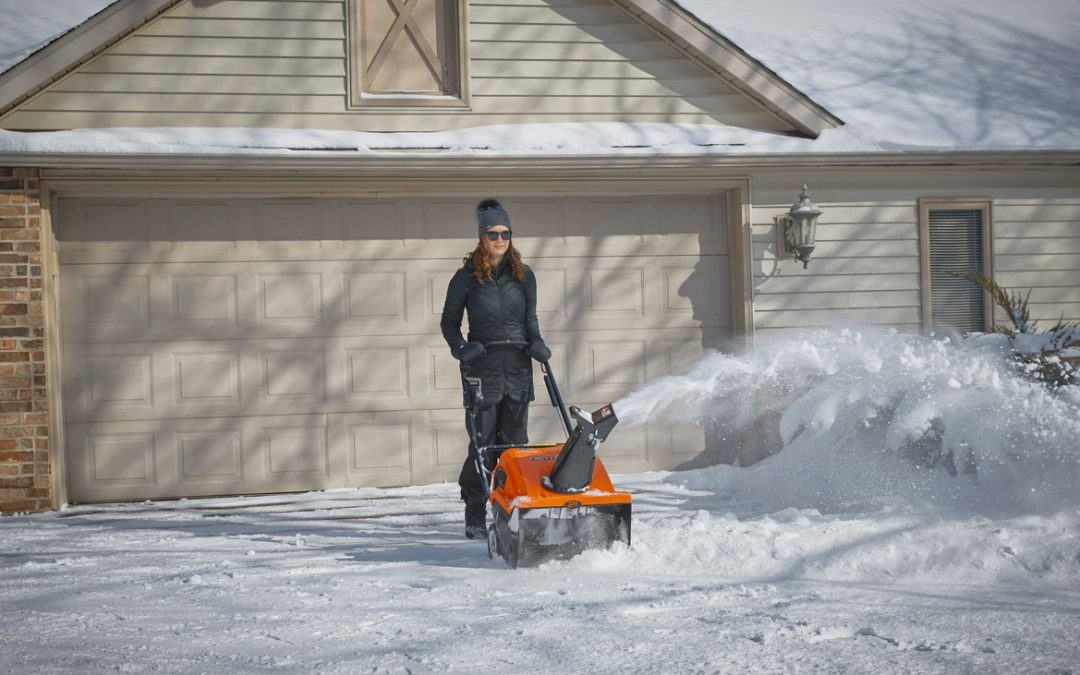The Outdoor Power Equipment Institute (OPEI) encourages homeowners to ready their snow throwers, often referred to as snow blowers, and other winter equipment as winter descends.
“Weather is more unpredictable now than ever, so you want to be ready before the first flakes fall. Get your snow thrower serviced now, before repair shops are busy,” says OPEI President and CEO Kris Kiser. “Now is also the best time to review your owner’s manual and operating procedures. You should know how to operate the controls and how to quickly shut off the snow thrower.”
OPEI offers the following questions to help homeowners get ready and review safety practices.
Have you read your owner’s manual? Review safe handling procedures. Know how to operate the controls. If the manual cannot be found, look it up online, and store a copy on your computer.
Have you checked your equipment since storing it? Make sure all equipment is completely powered off when checking it over. If you forgot to drain the fuel last winter before storing your snow thrower, empty the gas tank. Adjust any cables and check the auger when the equipment is powered off.
Is the equipment where you can get to it easily? Move equipment to a convenient and accessible location, so you can get to it quickly.
Have you purchased the right fuel? Be sure to use the correct fuel, as recommended by your equipment’s manufacturer. Fuel that is more than 30 days old can phase separate and cause operating problems. Buy gasoline ahead of a storm, as driving may be treacherous during storms and stations can be closed. For more information on fueling properly see www.LookBeforeYouPump.com.
Is gasoline being used safely? Before you start the engine, fill up the fuel tank on your snow thrower while the engine is cold and outside your home or garage. Never add fuel to a running or hot engine. Store the gasoline in a fuel container and label with date purchased and the ethanol content. Make sure fuel is stored safely and out of the reach of children.
Are batteries charged? If using a battery/electric-powered snow-thrower, make sure batteries are fully charged, in case electricity goes out during a winter storm.
Is the yard free of obstructions? Snow can hide objects. Doormats, hoses, balls, toys, boards, wires, and other debris should be removed. When run over by a snow thrower, these objects may harm the machine or people.
Are you dressed properly? Locate safety gear now, and place it in an accessible closet or location. Plan to wear safety glasses, gloves and footwear that can handle cold and slippery surfaces.
OPERATING SNOW THROWERS SAFELY
Is your clean out tool or stick ready? NEVER put your hands inside the auger or chute. Use a clean out tool (or stick) to unclog snow or debris from your snow thrower.
Do you turn off your snow thrower if you need to clear a clog? Always turn off the snow thrower and wait for all moving parts to come to a complete stop before clearing any clogs or debris.
Is your snow thrower operated only in visible conditions? Never operate the snow thrower without good visibility or light.
Can you aim your snow thrower with care? Never throw snow toward people or cars. Do not allow anyone to stand in front of your snow thrower.
Will you use extreme caution on slopes and hills? Do not attempt to clear steep slopes and use caution when changing directions on slopes or inclines.
Do you know where your cord is? Use an extension cord that is weather-resistant and designed for outdoor use. If using an electric-powered snow thrower, be aware of where the power cord is at all times. Avoid tripping. Do not run over the power cord.
Are pets and children inside while the snow thrower is operating? Kids and pets may love to play in the white stuff, but it’s best to keep them inside your home and supervised (by someone else) while a snow thrower is operating. Do not allow them to play in the snow as it is tossed out of the chute.
To learn more visit opei.org.

